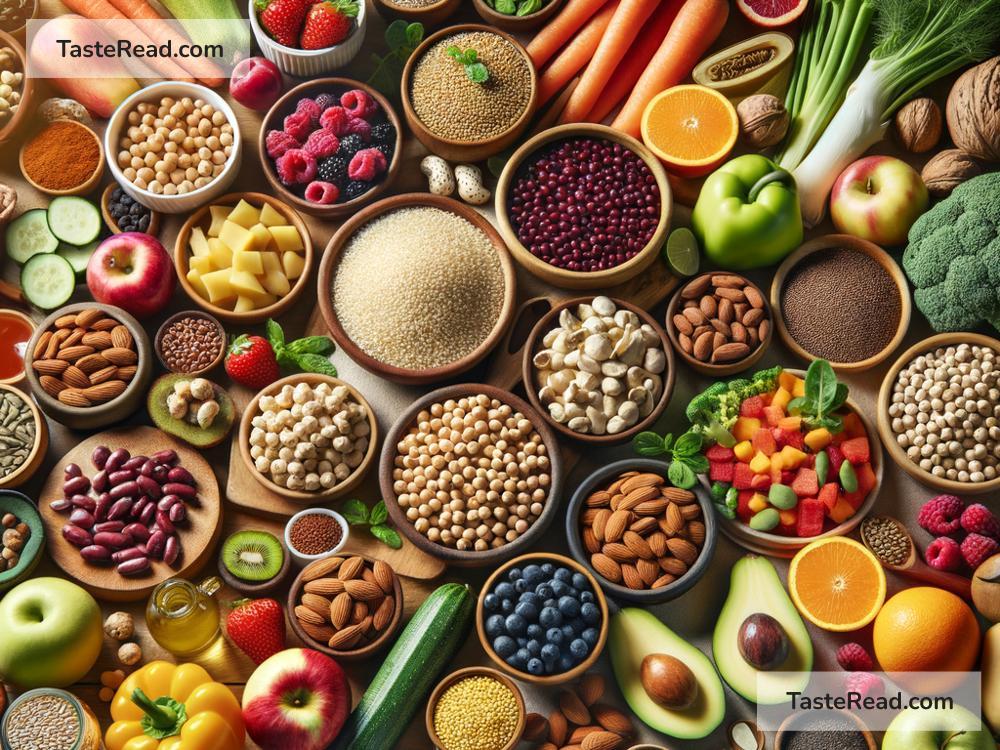How to Choose Low-Impact, Animal-Free Cooking Ingredients
Are you looking to make a positive impact on the environment while also ensuring that no animals are harmed through your cooking choices? Choosing low-impact, animal-free cooking ingredients is a great way to start. Whether you’re a vegan, vegetarian, or just looking to incorporate more plant-based options into your diet, this guide is for you. Let’s dive into some simple tips on how to select these ingredients.
Understand Low-Impact Ingredients
Low-impact ingredients are those that require fewer resources like water and land to produce. They also generate lower levels of greenhouse gases compared to animal-based ingredients. Most plant-based foods fall into this category, making them an excellent choice for sustainable cooking.
Embrace Whole Foods
Whole foods are as close to their natural state as possible. Think fruits, vegetables, whole grains, nuts, and seeds. These foods are not only low in environmental impact but are also packed with nutrients. Incorporating a variety of whole foods into your meals ensures you’re getting a broad range of vitamins and minerals, all while keeping your dietary impact low.
Prioritize Local and Seasonal Produce
Choosing local and seasonal produce can significantly reduce the carbon footprint associated with your food. Food that doesn’t have to travel far from farm to table requires less transportation, resulting in lower greenhouse gas emissions. Plus, seasonal fruits and vegetables often taste better and are usually more affordable.
Opt for Organic When Possible
Organic farming practices are designed to reduce pollution and conserve water and soil. By choosing organic ingredients, you’re not only avoiding exposure to pesticides and chemicals but also supporting farming methods that have a lower impact on our planet. However, it’s essential to recognize that organic can sometimes be more expensive, so balance your choices according to what’s feasible for you.
Explore Plant-Based Protein Options
Protein is a vital nutrient, but you don’t have to rely on animal products to get your daily dose. There are plenty of plant-based proteins that are both nutritious and environmentally friendly. Legumes like beans, lentils, and chickpeas, as well as tofu, tempeh, and seitan, are great alternatives. These options have the added benefit of being versatile, so you can easily incorporate them into a variety of dishes.
Reduce Food Waste
Part of choosing low-impact ingredients involves minimizing food waste. Plan your meals ahead of time and buy only what you need. Get creative with leftovers, and find new ways to use scraps. For instance, vegetable peels can be turned into stock, and overripe fruits are perfect for smoothies or baking. By reducing waste, you’re not only saving money but also lessening your environmental footprint.
Read Labels Carefully
When shopping for processed or packaged foods, take a moment to read the labels. Look for products that are certified vegan or plant-based to ensure they don’t contain animal derivatives. Also, keep an eye out for eco-friendly packaging and certifications like Fair Trade, which indicate that the product meets certain environmental and social standards.
Learn New Cooking Techniques
Part of embracing low-impact, animal-free ingredients is learning how to cook them in a way that’s both delicious and satisfying. Experiment with different cooking methods like roasting, steaming, or stir-frying to bring out the best in your plant-based ingredients. Don’t be afraid to try new spices and seasonings – they can make all the difference in elevating a dish.
Support Sustainable Brands
Many brands are committed to sustainability and ethical practices. By choosing to support these companies, you’re not only getting high-quality ingredients but also contributing to a better food system. Do some research to find brands that align with your values, and consider giving them your business.
Conclusion
Choosing low-impact, animal-free cooking ingredients is a meaningful step towards a more sustainable and compassionate lifestyle. By incorporating whole foods, prioritizing local and seasonal produce, and exploring plant-based proteins, you can enjoy delicious meals while making a positive impact on the planet. Remember, every small choice counts, and together, we can create a more sustainable future one meal at a time.


